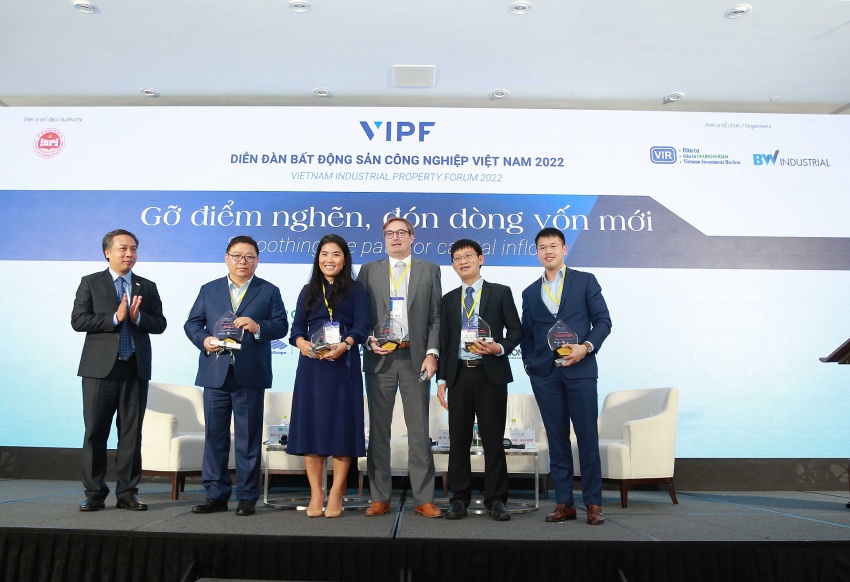INTERNATIONAL INVESTMENT
AND PORTAL
There would be huge investment capital inflows in Vietnam’s industrial property sector in the coming time if bottlenecks are solved to pave the way for multinational manufacturers, according to participants of the first session of the Industrial Property Forum 2022 co-organised by VIR and BW Industrial Development JSC.
According to Pao Jirakulpattana, vice president at Warburg Pincus Singapore, China is competing with many other emerging areas, including Vietnam.
“If you look at the investment flow on the global scale, although the flow is coming back to China in the global perspective as political tensions have arisen, ASEAN is becoming an attracting destination, including Vietnam,” Jirakulpattana said.
“Vietnam has done pretty well in receiving new investment flows. We highly appreciate the determination of the government to define which sectors should be the top priority. For example, the electronic and power sector will develop strongly in the next 10 to 15 years. Vietnam has started with intensive labour sectors. However, sustainable development must be more concentrated,” he added.
Jirakulpattana also expressed Vietnam’s disadvantages in capital and financial products. “We do not have an efficient approach for large-scale international investors yet, such as the Centre Group or chains from the Philippines,” he added.
 Panellists of the first session of the forum focused on capital investment flows and the removal of bottlenecks
Panellists of the first session of the forum focused on capital investment flows and the removal of bottlenecks
Meanwhile, Bruno Jaspaert, general director at DEEP C Industrial Zones expressed that Vietnam should not directly compete with China, but must be different from China and attractive to investors.
“Vietnam has an effective economy but like many other countries, it has to improve its infrastructure system, to meet the increasing demand of the market,” Jaspaert said.
He expressed the trend is shifting from Taiwan and China where manufacturers are expanding their factories.
“Despite China remaining the biggest manufacturer base for a long time, Vietnam is at a very strong position,” he added.
Jaspaert expected that there would be a large investment movement if an expressway connecting China’s Shenzhen and Vietnam was built in the future.
Vietnam, moreover, needs to strengthen its competitiveness by improving policies and regulations, to be more supportive for investors and developers,” he said.
Bui Trang, general manager of Cushman & Wakefield Vietnam, also expressed that manufacturers from Singapore, the US, and the European community have been moving into the Vietnamese market.
“Real estate developers have been very well connected with banks and other financial solutions to raise capital for their businesses. However, they need to focus on long-term financial sources for sustainable development,” Trang said.
“Japan and South Korea are also very interested in the Vietnamese market. With many multinational trade agreements, billions of US dollars are waiting to come to Vietnam,” Trang said.
Regarding bottlenecks, skyrocketing land prices in some key areas led to higher costs for manufacturers. Meanwhile, although Vietnam has spent about 5.8 per cent of GDP on infrastructure development, it is still a long way from developing an integrated infrastructure network with a deep-sea port system, inter-regional highways, and waterways.
By Bich Ngoc



















